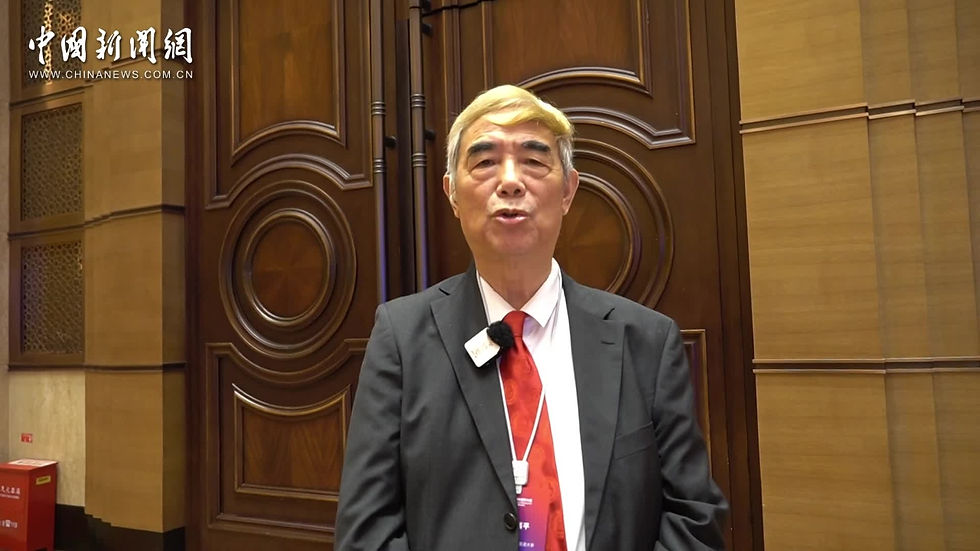China-Spain exchanges enter new chapter
- samuelsukhnandan
- Oct 26, 2025
- 2 min read
As China and Spain celebrate the 20th anniversary of their comprehensive strategic partnership in 2025, both nations are reflecting on centuries of shared history — a relationship that traces back more than 400 years to the era of the Manila Galleon trade.
In a recent episode of W.E. Talk, Zhang Xiping, professor at Beijing Foreign Studies University, and Víctor Cortizo, professor at Francisco de Vitoria University and president of the Hispanic Association of China Studies, discussed the evolution of China-Spain cultural exchanges, the rise of China Studies (Sinology) in the Spanish-speaking world, and new paths for global understanding of China.

A Maritime Bridge Between East and West
According to Zhang, Spanish ships began sailing from Mexico to Luzon Island in the 16th century, establishing commercial routes that connected the late Ming Dynasty with the Spanish Empire through the port of Quanzhou in present-day Fujian Province.
The Manila Galleon trade, which lasted for more than two centuries, carried Chinese silk, porcelain, and tea to Latin America and Europe, while returning with Spanish silver that fueled economic and cultural exchange.
Zhang emphasized that this trade marked the first peaceful encounter between Eastern and Western civilizations and laid the groundwork for the birth of Spanish Sinology. He highlighted that Spanish missionary
Juan González de Mendoza’s History of the Great and Mighty Kingdom of China became one of the earliest Western works on China, making Spain a pioneer in Chinese studies.
Cortizo agreed, noting that the Galleon trade also facilitated the exchange of ideas, religion, and art, serving as an early bridge of understanding between China and the West.

Zhang Xiping, a professor at Beijing Foreign Studies University.
Modern Sinology and Renewed Cultural Dialogue
Fast forward to the present, interest in China Studies is once again on the rise in Spain and across Latin America. Zhang cited Spanish scholar Alicia Relinque Eleta, who has translated major Chinese literary classics including The Peony Pavilion, The Golden Lotus (Jin Ping Mei), and The Literary Mind and the Carving of Dragons (Wenxin Diaolong), earning the 11th Special Book Award of China.
Zhang stressed that as China becomes more influential globally, Chinese scholars should also pay attention to how China is studied abroad, echoing reformist Liang Qichao’s view that understanding China requires exploring its place in Asia and the world.
Cortizo observed that Spanish academia now shows growing interest in China’s modern development and its relations with Spanish-speaking countries. He also noted that China has become one of Spain’s key partners, investing in innovation and future industries, while Spain continues to serve as an important European gateway for Chinese trade and culture.
Acting as a cultural bridge between China, Latin America, and Europe, Spain plays a crucial role in deepening mutual understanding and cooperation, Cortizo added.
Zhang concluded that to truly grasp Chinese modernization, sinologists must integrate historical insight with contemporary observation.
“We hope more sinologists will come to China to experience its profound cultural heritage and dynamic vitality,” Zhang said.
(Rewritten from We Talk and ESCN)





Comments